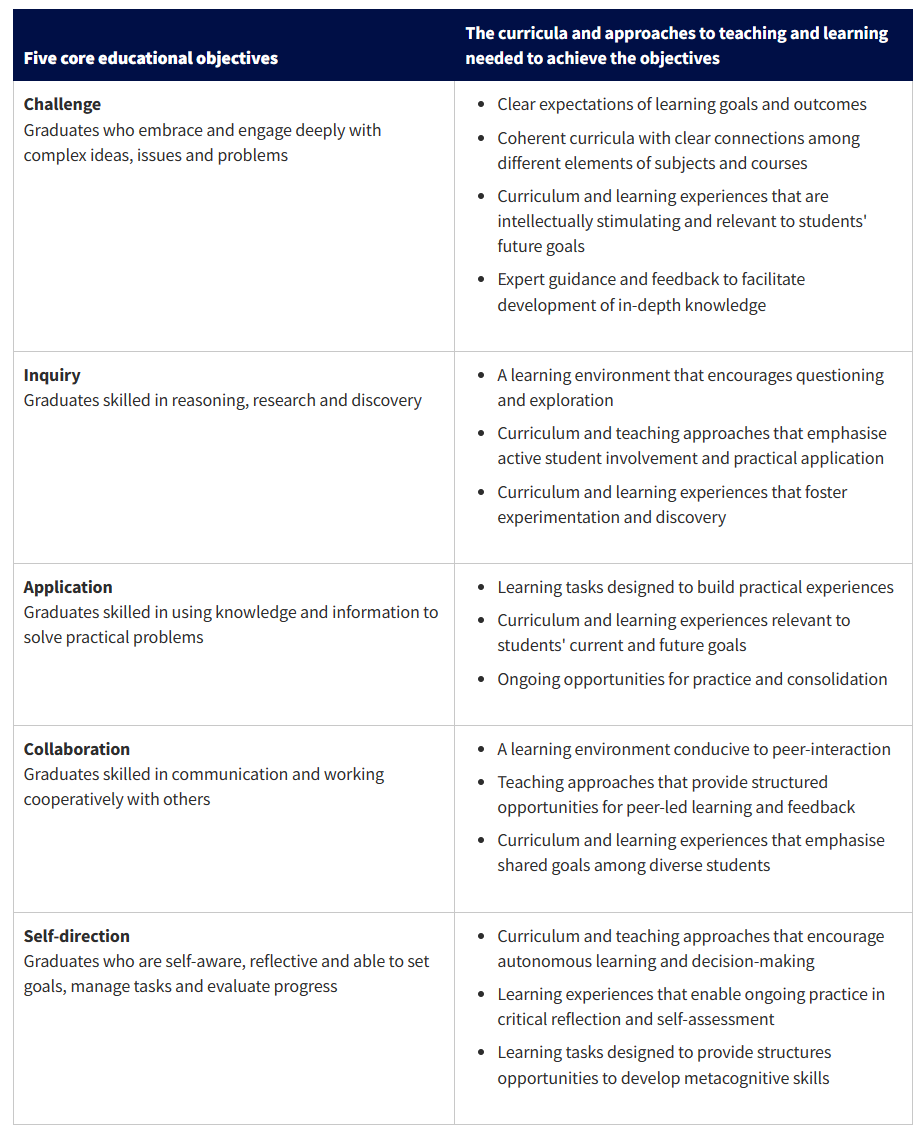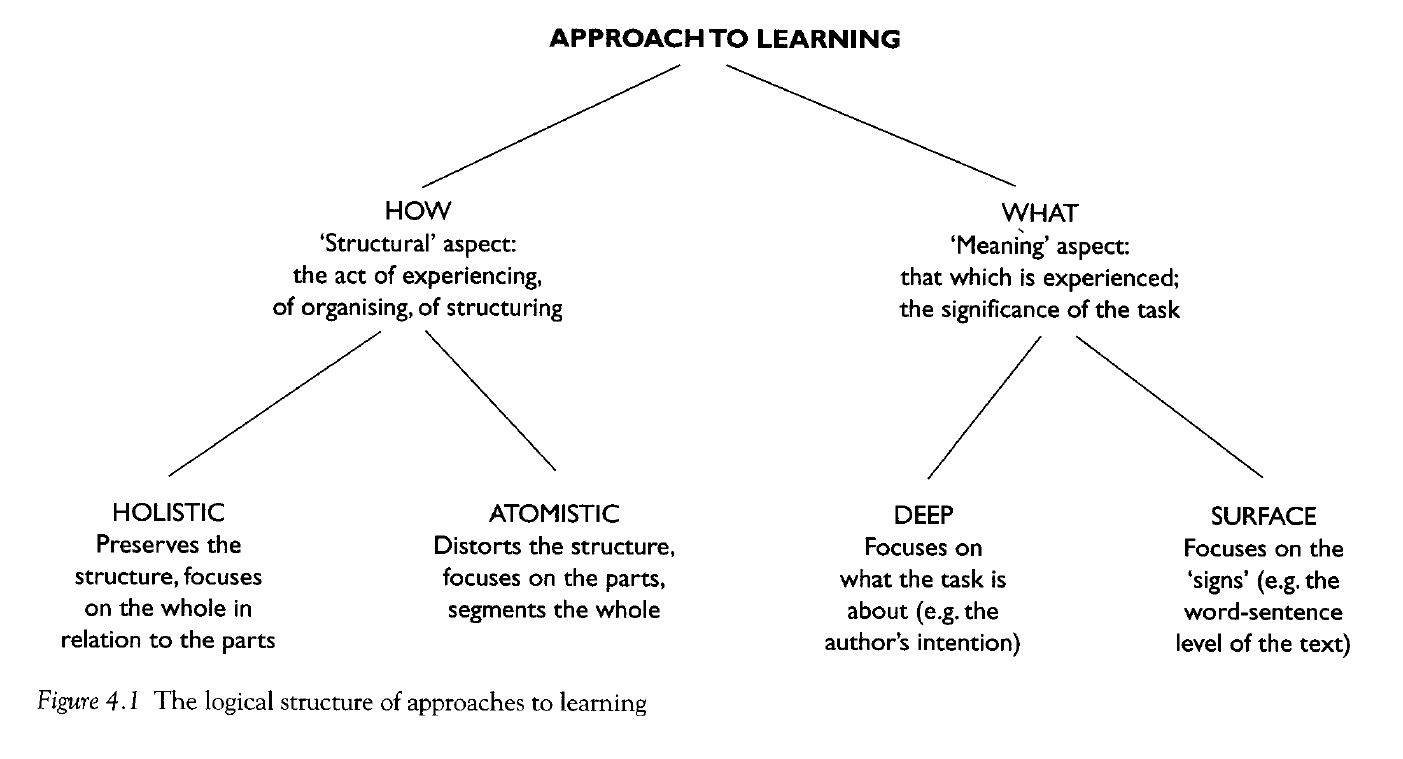Principles
This is a note that includes the key teaching principles as a sketch for the teaching manifesto or a teaching philosophy.
Relates to the notes on:
Why
- Overcome the environmental crisis
- Benefit from the richness of the whole world, not only human cultures
- Support wellbeing and thriving for all
- Strive to understand the world as it is
What
- Study life in all its expressions, beneficial or harmful, human-like or weird, familiar or hidden
- Study abiotic as well as living systems along with their patterns, histories, and relationships
How
-
Ensure the culture of truthfulness, or 'life in truth' and 'truth in life'
-
Support critical debate, disagreement and contest are the healthy condition for the truth community
-
Resist exclusion (cf. ableism, colonialism, epistemicide, speciesism, racism, etc.) and insure the practical mechanisms of inclusion
-
Support moral imagination, use speculative narrative, lived examples, critical designs
-
Use methods that can support many forms of knowledge, including non-linguistic, tacit, distributed, etc.
-
Expect slow learning and gradual accumulation of knowledge, expertise and wisdom over years
-
Engage with mathematical and data-driven approaches,1 use evidence, use measuring
-
Use the precautionary principle to frame innovation, consider novelty and innovation with scepticism
-
Introduce explicit constraints and checks to confine individual human creativity, treat creativity with the same scepticism as innovation
-
Do not hide knowledge where it is available
-
Accept that knowledge can be dangerous and supply it with how-to-use manuals
-
Support forgetting and unlearning as well as learning
-
Treat traditions, especially human traditions, with the same scepticism and suspicion as innovations
-
Treat human knowledge and capabilities with humility, understand that they are not unique and that their goodness is in question
-
Preference localism and bioregionalism but resist idealisation of historical systems
-
Practice what you teach
-
Learn while teaching. Teach yourself as well as others
-
Offer a promise (a future-oriented manifesto, risk-taking and release, an interval and an opening)2
-
Seek support from alternative sources of knowledge and practice
-
Seek support from organisations that aim to resist hegemonic injustice (cf. unions, grass-roots organisations, etc.)
-
Rely on learner-oriented approaches
-
Commit to evidence-based approaches to education
-
Integrate diversity as a core principle, taking it beyond human-only diversity
Where and When
- Ensure that learning is lifelong, culture-long, species-long, etc.
- Extend beyond local responsibilities when considering damage
- Go deep and consider local regions and stakeholders when seeking to produce benefits
- Support intergenerational and interspecies knowledge
- Support local and regional knowledges
Who
- Do not suspend the ethical/moral considerations to fit the local circumstances
- Support the disempowered and treat the dominant powers with suspicion
- Reach for and use the knowledge on nonhuman lifeforms wherever possible
- Deploy forms of positive discriminations to correct power misbalances
Things to Resist
- Resist the knowledge as “an ornament that allows us to rise in the pecking order.” (cf. Umberto Eco)
- Resist oppression and injustice, for example:
- Employability is exploitability, teach the dark side of employability, exploitation and alienation of work in capitalist systems, etc.3
Notes on the Teaching Ethics
Towards a manifesto or a declaration.
Formulate key challenges, commitments and responses of the degree. Share it with tutors and students.
Main objective of the discipline:
The objective for the discipline is to support shared habitation (that is - life) on Earth (that is not to build, etc., this falls under methods and is optional).
The key objective of teaching:
To support humans and others to learn to live together.
The key commitment:
We shall declare why we teach what we teach (this is to resist essentialism and the dominance of the status quo)
Topics:
- justice: human and nonhuman (de-colonialism, ecocentric justice, alternative economic and habitation systems as supported by design)
- we shall give voice to all who have knowledge, wisdom, history and all who can teach: land, birds, humans, machines, etc.
- resilience: understand the harms: climate change, biodiversity, etc. understand possible responses and limitations
- innovation: approaches, methods, tools and opportunities
- social/cultural innovation, de-growth, voluntary simplicity, inclusion (more-than-human cultures)
- conceptual innovation: shall show best ideas from the past, the current practice and possible futures
- technical innovation: we shall provide an opportunity to learn the best of current and emerging technologies
- constraints and cautions to temper innovation
Implications:
- Teach to design holistically, teach to undesign, repair, etc.
- Support ideas with evidence and teach ways to generate this (numerically)
- Etc.
Development and Preparation
To prepare a Teaching Philosophy document, ask: "according to you, how do students learn best?"
Teaching Portfolio
A personal teaching portfolio reveals beliefs about student learning and what ‘good’ or ‘effective’ teaching is.
A useful step in building a case for teaching excellence:
- a brief overview of the teaching approach (philosophy) & history
- a careful selection of materials that:
- shows aspects of the teaching practice and experience;
- demonstrates approaches to teaching and understanding of good teaching; and
- provides examples that demonstrate facilitations of student learning.
Examples of frameworks
It is a good idea to use a framework to structure the teaching philosophy.
Lenses
Brookfield’s Four Lenses as a framework for critical reflection:
- Theoretical lens: theory and research on university teaching & learning
- Autobiographical (self) lens: our histories/experiences as students and teachers
- Peer lens: view of colleagues
- Student lens: students perspective and experiences of our teaching
Brookfield, Stephen. Becoming a Critically Reflective Teacher. 2nd ed. 1995. Reprint, San Francisco: Jossey-Bass, 2017.
The Melbourne Way

The Melbourne Way, apparently is to be expanded into seven rows as advised at the end of 2023.
Learning to Teach
- Interest and explanation
- Concern and respect for students and student learning
- Appropriate assessment and feedback
- Clear goals and intellectual challenge
- Independence, control and engagement
- Learning from students

Ramsden, Paul. Learning to Teach in Higher Education. 2nd ed. London: Routledge, 2003.
What the Best Teachers Do
- Create a ‘natural critical learning environment’
- Get students’ attention and keep it
- Start with the students rather than the discipline
- Seek commitments
- Help students learn outside of class
- Engage students in disciplinary thinking
- Create diverse learning experiences
Bain, Ken. What the Best College Teachers Do. Cambridge, MA: Harvard University Press, 2004.
The Case for Teaching Effectiveness
Personal teaching for student engagement. Approaches to teaching, teaching activity, support and feedback. Leadership. Of teaching teams, programs/courses, course accreditation, mentoring.
References
Barnett, Ronald, and Søren Smedegaard Bengtsen. Knowledge and the University: Reclaiming Life. Abingdon: Routledge, 2020.
Bennett, Karen. ‘Epistemicide!’ The Translator 13, no. 2 (2007): 151–69. https://doi.org/10/gj7wzr.
Brookfield, Stephen. Becoming a Critically Reflective Teacher. 2nd ed. 1995. Reprint, San Francisco: Jossey-Bass, 2017.
Hall, Richard. ‘The Hopeless University: Intellectual Work at the End of the End of History’. Postdigital Science and Education 2, no. 3 (2020): 830–48. https://doi.org/10/gqbwt2.
Hooley, Tristram, Ronald G. Sultana, and Rie Thomsen, eds. Career Guidance for Emancipation: Reclaiming Justice for the Multitude. New York: Routledge, 2019.
Hooley, Tristram, Ronald G. Sultana, and Rie Thomsen, eds. Career Guidance for Social Justice: Contesting Neoliberalism. New York: Routledge, 2018.
Vandendriessche, Eric, and Rik Pinxten, eds. Indigenous Knowledge and Ethnomathematics. Cham: Springer, 2022.
Footnotes
Chronaki, Anna, and Eirini Lazaridou. ‘Subverting Epistemicide Through “the Commons”: Mathematics as Re/Making Space and Time for Learning’. In Indigenous Knowledge and Ethnomathematics, edited by Eric Vandendriessche and Rik Pinxten, 161–79. Cham: Springer, 2022.˄
Áine Mahon, “The Gift of the Interval? Revisiting the Promises of Higher Education,” in The Promise of the University: Reclaiming Humanity, Humility, and Hope, ed. Áine Mahon (Singapore: Springer, 2021), 1–13.˄
Maïa Pal, “Employability as Exploitability: A Marxist Critical Pedagogy,” in Thinking Beyond Neoliberalism: Alternative Societies, Transition, and Resistance, ed. Neal Harris and Onur Acaroğlu (Cham: Springer, 2022), 197–219.˄
Backlinks